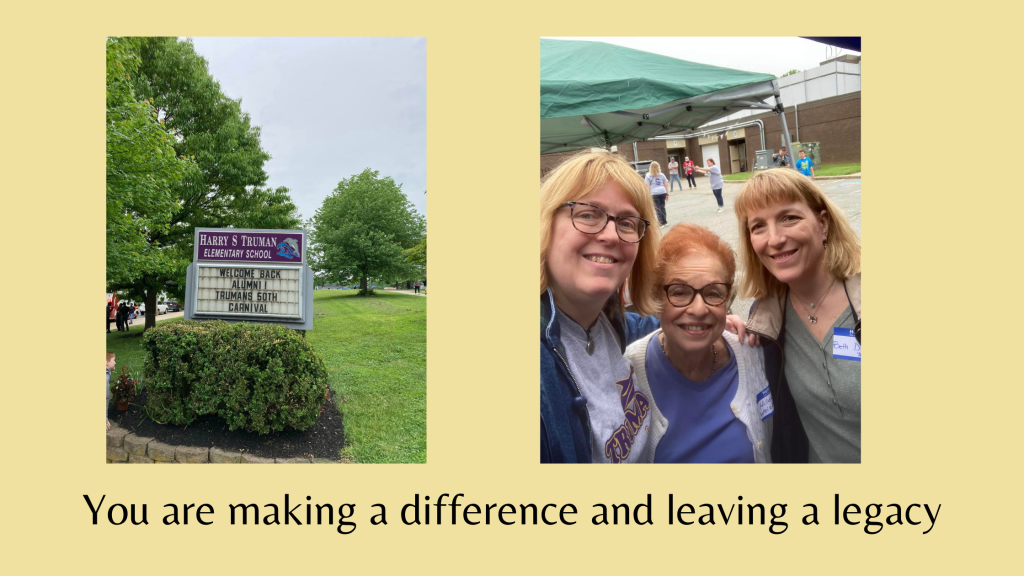
In the May 2024 issue of Educational Leadership (EL), the journal of the Association for Supervision and Curriculum Development (ASCD), the opening of the article “Increasing the Psychic Rewards of Teaching” caught my attention. The author, Koss Minor, quotes the following from Dan Lortie’s book Schoolteacher: A Sociological Study:
While lawyers know whether they have won or lost a case, and architects get to see their designs rendered into a house, teachers must rely on more psychic rewards—subjective experiences that lend themselves towards feelings of success.
It is perhaps even truer for school librarians. Teachers can point to standardized tests (not that these are the best indicators) and end-of-unit assessments. As librarians, we create our own ways of measuring what our students learned and took away from any given learning experience – often only lasting for one class. And, yes, there are studies such as those written by Keith Curry Lance and Debra E, Katchel showing what we bring. The studies are sadly too often been ignored by administrators who sometimes see them as self-serving. Some days it’s hard to keep doing what we do as we see budgets and positions being eliminated.
But today I can tell you quite definitively that what we do is not only important, but remembered.
Fifty years ago, I returned to school librarianship after my youngest began an all-day nursery program and became the librarian of a brand-new, K-6 public school based on the British infant school plan. It was there that I learned much about cooperating with teachers – and did what I thought was the main job of a school librarian – I read stories to all grades.
That wouldn’t be the focus of any librarian today. It can’t be. However, as I recently learned, we must not lose this aspect of what we bring to students. To recognize the 50th anniversary milestone, the borough decided to celebrate it. There was a carnival – and a Facebook group for it. When I posted I had great memories of my time there and was looking forward to being there, former students began commenting. A few hoped I would read a story again.
The request for a story was my first indicator of what I saw once I was at the event. My former students kept coming to me talking about what they remembered. They spoke of specific books that lingered and mattered. One mentioned the Phantom Tollbooth by Norman Juster. She noted when she saw it in a bookstore, she bought six copies to distribute to friends to read to their kids. Others shared that they got their love of reading from me. The day made reminded me that the most lasting gift we can give our students is the joy of reading.
In the 50 years since I started this journey with you, librarians have pivoted constantly. We have become the tech experts in our buildings. We keep up with whatever new technology comes along. We share our expertise with teachers. We adapt our collection for the times and the students in our building.
And still our numbers shrink.
Librarians are leaving the profession at an alarming rate, partially from exhaustion and stress. Unfortunately, a bigger reason is the attacks we have been facing not only from parents and boards of education but also from state legislators. How do we continue to get up each day and enthusiastically work on carrying out our Mission Statements and bringing our Vision Statements into reality?
In writing this blog, I searched the internet to find articles on the part of our Mission Statement we often overlook – creating lifelong readers. The best I could do was this MiddleWeb blog, School Libraries Build Lifelong Reading Skills. Although it was from a classroom teacher’s perspective who started with her classroom library, she did reach out to the school librarian. The cooperation was great, but students had very few opportunities to be in the library.
What is missing is the joy. That is something key we bring and must continue to bring.
I hope you can find ways in today’s tech-driven world to bring the joy of reading to students. Keep reading stories at the elementary level, have book clubs at middle and high school. Because one of the ways we create a legacy is through fostering the love of reading. Keep being there for your students – and trust that you are making a lasting difference.